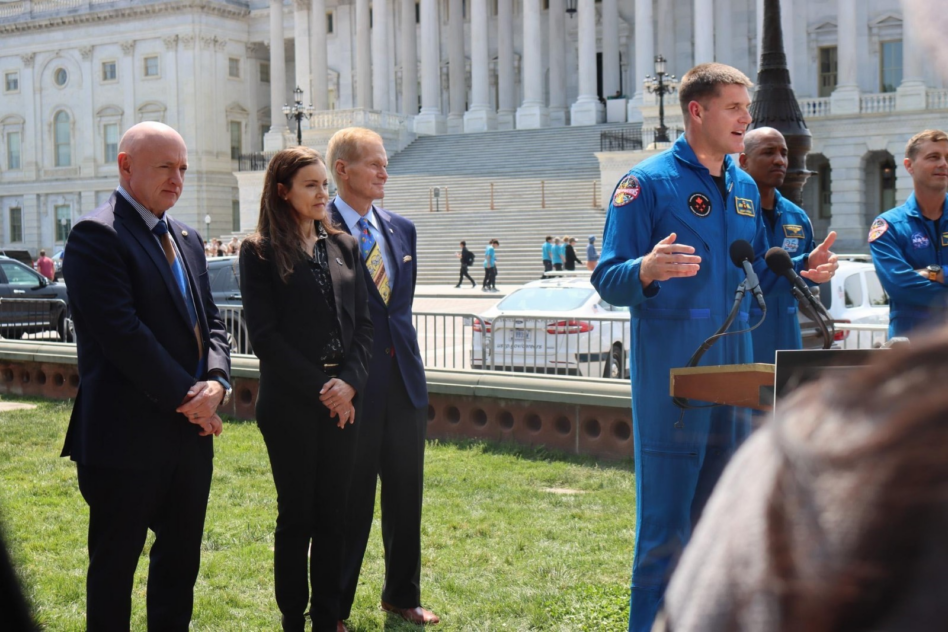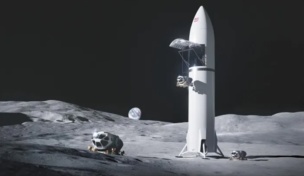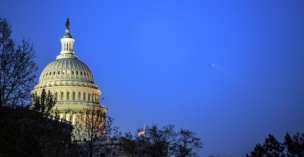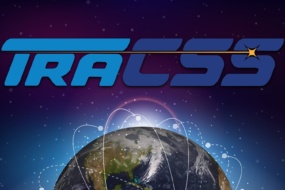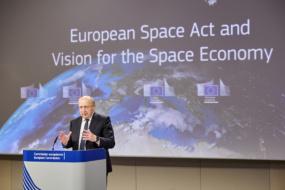The Artemis 2 crew found inspiration in their visit to DC last week, despite the backdrop of partisan debt limit debates and Republican-backed efforts to slash nearly a quarter of NASA’s budget.
When I asked Victor Glover how the crew’s meetings with lawmakers had gone amid these financial concerns, he was overwhelmingly optimistic about the level of bipartisan support they had received.
“People expect us to show up places and provide some inspiration, and we take that very seriously,” Glover said on Thursday at a press conference. “But what has happened is, as we show up in places, folks are cheering us on and telling us how they’re going to support us and make sure that we can keep doing the things that we’re doing. … I have walked away inspired.”
If you want the rainbow: Space has a long history of support from both parties regardless of bitter divides in other areas, and that’s something Sen. Mark Kelly (D-AZ) said he sees continuing, despite growing partisanship in Washington.
“One of the positive things about being NASA is you’re generally very popular from all the way on one side to the other,” he said. “Sometimes I think NASA is the Dolly Parton of government agencies. Everybody loves Dolly Parton.”
You gotta put up with the rain: Even with near-universal support for the space agency and its Moon plans, political hurdles could still hurt the Artemis program, according to experts. The biggest danger is the 22 percent budget cut to non-defense budgets proposed by Republicans aiming to rein in what they see as out-of-control federal spending.
“The big political hurdles are the things that have nothing to do with Artemis,” said Casey Dreier, chief of space policy at the Planetary Society, adding that the cuts proposed by Republicans are “fundamentally incompatible with pursuing Artemis at the schedule NASA has proposed.”
Any significant delays in new technology, including Starship and the spacesuits being designed for the mission, could also prompt lawmakers to start questioning the mission, said Laura Forczyk, executive director of space consulting firm Astralytical.
A little help from my friends: One way NASA has tried to protect Artemis from political upheaval is by creating and leading an international coalition with two dozen signatories of the Artemis Accords, plus technical contributions from JAXA, ESA, and the Canadian Space Agency , which is also flying an astronaut on the Artemis II mission.
“It is very difficult to back out of an international coalition when you are the leader, and NASA has established itself firmly as the leader of this initiative,” Forczyk said. “To me, that was political brilliance”
Another way to ensure political buy-in is to play up the competition with China, which is pursuing its own lunar base on the Moon’s south pole. Forczyk said pitting the US against China—and highlighting how embarrassing it would be if Beijing beat Washington—could be the “number one thing” to make sure politicians give NASA the funding it needs.
And astronaut visits, like the one last week, also help.
“The more astronauts on Capitol Hill the better,” Dreier said. “The meeting that lawmaker or staffer has with an astronaut or NASA scientist is going to be the highlight of their day. It’s something unequivocally exciting that everyone can be proud of.”
Celestial celebrity: The Artemis astronauts caused quite the stir before their Capitol Hill press conference. A handful of people took pictures of them and shook their hands as the crew approached the podium on the grass outside the Capitol. A group of tourists from Houston said they stopped to watch after spotting the familiar blue flight suits.
Kelly had his own fan club. After the press conference, a space enthusiast who brought a copy of Kelly’s NASA portrait to the event asked the astronaut-turned-senator to autograph it.
